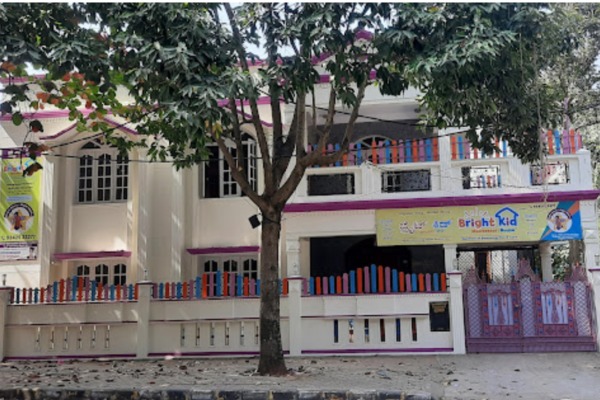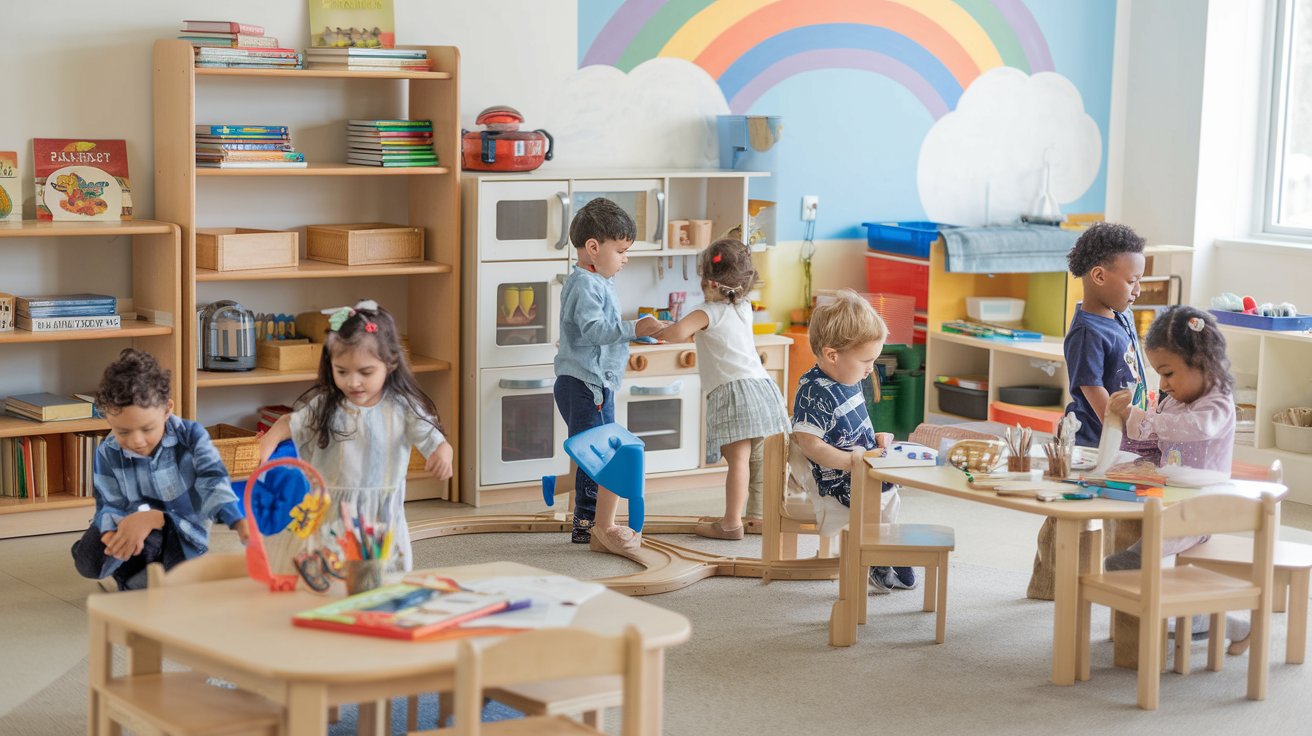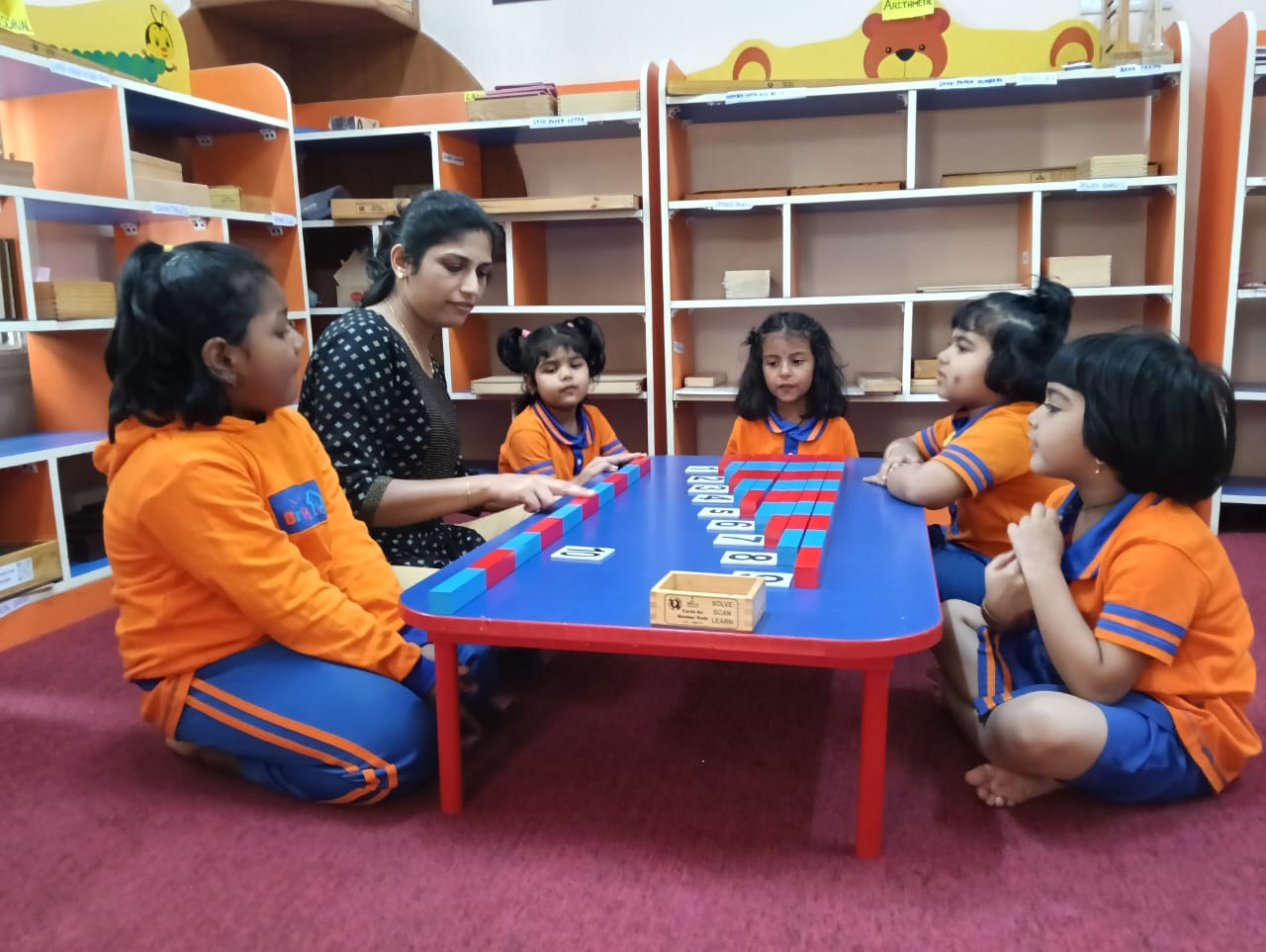Embarking on the Journey of Starting Your Own Preschool
Embarking on the journey of starting your own preschool is an exciting and rewarding endeavor that requires careful planning and dedication. This comprehensive guide will equip you with the essential knowledge and tools needed to establish a successful preschool that nurtures young minds. From creating a curriculum that fosters holistic development to designing a safe and engaging learning environment, every aspect of launching and managing a preschool will be explored. Whether you are a passionate educator looking to make a difference in early childhood education or an entrepreneur seeking a fulfilling business opportunity, this guide will serve as your roadmap to turning your vision into a reality. Get ready to delve into the world of early education, where every decision you make can positively impact the lives of children and their families. Let’s embark on this enriching journey together and build a preschool that inspires a love for learning and sets the foundation for a lifetime of success.
Understanding the Preschool Franchise Market
As the demand for quality early childhood education continues to rise, the preschool franchise market has seen significant growth over the years. In this section, we will delve into the key factors driving this industry, explore the trends shaping the market, and discuss the opportunities available for aspiring entrepreneurs looking to invest in the preschool franchise sector.
Growing Demand for Preschool Education
One of the primary reasons behind the expansion of the preschool franchise market is the increasing awareness among parents about the importance of early childhood education. Parents today are more inclined to enroll their children in reputable preschools that offer a structured learning environment and focus on holistic development. The demand for preschool education is not just about academic readiness but also about social, emotional, and cognitive development at a crucial stage of a child’s life.
Key Factors Driving the Preschool Franchise Industry
Several factors contribute to the success of the preschool franchise model. Apart from a robust curriculum and teaching methodologies, an established brand reputation plays a significant role in attracting parents and ensuring trust in the quality of education provided. Additionally, ongoing support from the franchisor, including training programs, operational guidelines, and marketing assistance, empowers franchisees to deliver consistent and high-quality educational experiences. The collaborative network of franchisees also fosters a sense of community and shared best practices, further enhancing the overall effectiveness of the franchise system.
Trends and Opportunities in the Preschool Franchise Market
The preschool franchise market is dynamic, with trends that reflect the evolving landscape of early childhood education. One notable trend is the integration of technology in teaching practices, offering interactive learning experiences and personalized instruction to meet individual student needs. Furthermore, there is a growing emphasis on inclusive education, catering to children with diverse learning abilities and backgrounds. Entrepreneurs entering the preschool franchise market can capitalize on these trends by incorporating innovative educational approaches and differentiated services to meet the varied demands of modern families.
Moreover, the preschool franchise market presents a range of opportunities for individuals keen on making a difference in education. With the global focus on quality education from an early age, there is a heightened demand for preschools that prioritize not only academic excellence but also social skills development, creativity, and critical thinking. Entrepreneurs can leverage this demand by creating unique educational offerings, fostering partnerships with local communities, and staying abreast of emerging educational research and practices.
The preschool franchise market offers a fertile ground for passionate individuals who aspire to contribute to the educational growth and development of young children. By understanding the driving factors, staying attuned to market trends, and seizing available opportunities, entrepreneurs can establish successful preschool franchises that positively impact the lives of both students and their families.
Selecting the Ideal Preschool Franchise
When considering investing in a preschool franchise, it’s crucial to evaluate various criteria to ensure you choose the ideal option for your business venture. Factors such as brand reputation, curriculum quality, support provided by the franchisor, initial investment required, ongoing fees, training programs, and marketing support should all be carefully assessed. Evaluating the territorial rights and exclusivity offered by the franchise, along with any restrictions or obligations, is also important in making an informed decision that aligns with your goals and expectations.
Criteria for Evaluating Franchise Options
To assist you in your decision-making process, we have conducted a comparative analysis of the top preschool franchises in India. This analysis includes a detailed assessment of key features such as market presence, educational approach, franchisee satisfaction, growth potential, innovation in teaching methods, technology integration, and adaptability to changing educational trends. By comparing these factors across different franchises, you can gain valuable insights that will help you select the franchise that best suits your needs and stands out in the competitive preschool market.
Choosing a Franchise that Aligns with Your Vision and Values
Beyond financial considerations, it is essential to choose a franchise that aligns with your vision and values. Look for a preschool franchise that shares your educational philosophy, values diversity and inclusivity, promotes sustainability practices, and fosters a culture of continuous improvement. Consider the opportunities for community engagement, parent involvement, and student enrichment programs offered by the franchise. By selecting a franchise that resonates with your beliefs and aspirations, you can establish a fulfilling and successful business that makes a positive impact on the lives of young children and contributes to the overall development of society.
The Importance of Location and Demographics
Another critical factor to consider when selecting a preschool franchise is the location and demographics of the target market. Analyzing population density, income levels, family demographics, and competition in the area can provide valuable insights into the potential success of the franchise. Understanding the local community’s needs and preferences is essential for tailoring your services and programs to meet the demand effectively. Additionally, conducting a thorough analysis of market trends, growth projections, and regulatory requirements in the region can help you make an informed decision that maximizes your chances of success.
Training and Ongoing Support
A reputable preschool franchise should offer comprehensive training programs and ongoing support to help franchisees succeed. From initial onboarding and operational guidance to continuous professional development and access to educational resources, the franchisor’s support structure plays a crucial role in the success of your franchise. Evaluate the quality of training provided, the availability of mentorship opportunities, and the level of assistance offered in marketing, curriculum development, and business management. Choosing a franchise with a robust support system can enhance your capabilities as an early childhood education provider and empower you to deliver high-quality services that meet the needs of young learners and their families.
Building a Strong Brand Presence
Establishing a strong brand presence is essential for attracting families and building credibility in the preschool market. When selecting a franchise, consider the brand’s reputation, visual identity, marketing strategies, and overall brand recognition. Collaborating with a franchise that has a proven track record of success and a well-defined brand image can give you a competitive edge in a crowded market. Utilize the franchisor’s marketing resources, digital platforms, and advertising campaigns to promote your franchise locally and engage with your target audience effectively. By building brand awareness and cultivating a positive reputation in the community, you can differentiate your preschool franchise and attract more families seeking high-quality early childhood education services.
Embracing Innovation and Adaptability
Innovation and adaptability are key drivers of success for preschool franchises. Look for a franchise that embraces new teaching methodologies, integrates technology into its programs, and stays abreast of emerging trends in early childhood education. Consider how the franchise incorporates play-based learning, STEAM (science, technology, engineering, arts, and mathematics) activities, and individualized instruction to create a dynamic and engaging educational experience for children. By staying innovative and adaptable, you can meet the evolving needs of young learners, differentiate your franchise from competitors, and position yourself as a leader in early childhood education.
Conclusion
Selecting the ideal preschool franchise requires careful consideration of various factors, including franchise criteria, comparative analysis, alignment with your values, location and demographics, training and support, brand presence, and innovation. By conducting thorough research, evaluating your options, and choosing a franchise that resonates with your goals and aspirations, you can establish a successful and rewarding business in the competitive preschool market. Remember that investing in a preschool franchise is not just a financial decision but a commitment to providing quality education, nurturing young minds, and making a positive impact on the future generation. Choose wisely, and embark on a journey to create a lasting legacy in early childhood education.
Steps to Launching Your Preschool Franchise.
Planning and Researching Your Business Model
Before diving into launching your preschool franchise, it is essential to thoroughly plan and research your business model. This includes defining your target market, understanding the competition, and determining the unique selling points of your franchise. Conduct market research to identify the demand for preschool services in your target area and assess the feasibility of your business model. Consider factors like location, curriculum, pricing, and potential partnerships with suppliers or educational organizations.
Navigating Legal Requirements and Licensing Procedures
Once you have a solid business plan in place, the next step is to navigate the legal requirements and licensing procedures associated with operating a preschool franchise. This involves obtaining the necessary permits, licenses, and certifications to ensure compliance with local regulations. Research the specific licensing requirements for preschools in your state or country, and ensure that your facilities meet safety standards and educational guidelines. Consult with legal experts or industry associations to ensure that you are fully informed about all legal obligations.
Securing Funding and Financial Planning
Securing funding is a crucial aspect of launching a preschool franchise. Whether you opt for traditional bank loans, seek investors, or explore other funding options, having a clear financial plan in place is essential. This includes budgeting for initial startup costs, ongoing operational expenses, and potential growth opportunities. Create detailed financial projections to estimate your revenue streams, expenses, and anticipated profits. Consider factors like pricing strategies, enrollment projections, and seasonal variations in demand. Explore financing options like Small Business Administration (SBA) loans, crowdfunding, or franchisor assistance programs to support your financial needs.
Marketing and Branding Strategies
Developing strong marketing and branding strategies is essential for attracting families to your preschool franchise. Create a compelling brand identity that reflects your values, educational philosophy, and unique offerings. Utilize digital marketing channels like social media, email campaigns, and a professional website to reach your target audience and build brand awareness. Consider hosting open houses, community events, or partnerships with local businesses to showcase your preschool and engage with prospective families. Implement customer referral programs, loyalty incentives, and promotional discounts to encourage enrollment and foster long-term relationships with parents.
Building a Strong Team and Educational Program
Building a strong team of educators, administrators, and support staff is crucial for the success of your preschool franchise. Recruit qualified professionals who are passionate about early childhood education and dedicated to providing high-quality care for children. Develop comprehensive training programs, professional development opportunities, and performance evaluations to support your team and maintain high standards of excellence. Design a dynamic and engaging educational program that aligns with best practices in early childhood education, incorporates play-based learning, and fosters social, emotional, and cognitive development. Collaborate with educational experts, curriculum designers, and child development specialists to create a curriculum that meets the diverse needs and interests of young learners.
Monitoring Performance and Continuous Improvement
Monitoring the performance of your preschool franchise and implementing continuous improvement strategies are essential for long-term success. Track key performance indicators like enrollment rates, student retention, parent satisfaction, and financial metrics to assess the effectiveness of your business operations. Collect feedback from parents, staff, and community members through surveys, focus groups, and direct communication to identify areas for improvement and innovation. Stay informed about industry trends, regulatory changes, and emerging technologies to adapt your business model and educational practices accordingly. Foster a culture of continuous learning, collaboration, and innovation within your preschool franchise to drive growth, excellence, and positive outcomes for children and families.

Establishing Your Preschool Franchise
Setting Up Infrastructure and Educational Facilities
When establishing your preschool franchise, one of the foundational steps is to focus on setting up a conducive infrastructure and top-notch educational facilities. Creating a safe, stimulating environment for children is paramount. Design classrooms with educational materials, learning aids, and interactive resources that promote holistic development. Additionally, ensure compliance with all regulations and safety standards to provide a secure space for young learners.
Recruiting Qualified Staff and Educators
A critical aspect of running a successful preschool franchise is the recruitment of highly qualified staff and educators. Seek out individuals who are not only well-versed in early childhood education but also passionate about nurturing young minds. Conduct rigorous interviews, comprehensive background checks, and provide ongoing training opportunities to equip your team with the necessary skills to deliver exceptional learning experiences.
Implementing Effective Teaching Methodologies
Beyond infrastructure and staffing, implementing effective teaching methodologies is vital for the efficacy of your preschool franchise. Develop a comprehensive curriculum that is not only age-appropriate but also engaging and aligned with educational standards. Foster an environment that encourages interactive learning, creativity, and social skills development. Regularly assess teaching strategies, incorporate feedback, and adapt approaches to meet the diverse needs of each child.
Community Engagement and Parent Involvement
Building strong relationships with the local community and fostering parent involvement are key components of a thriving preschool franchise. Collaborate with local organizations, host community events, and involve parents in their child’s educational journey. Establishing open communication channels can enhance trust and create a supportive network for both children and families.
Embracing Technology and Innovation
Integrating technology and innovation into your preschool franchise can amplify learning opportunities. Explore educational apps, interactive tools, and digital resources that complement traditional teaching methods. Stay abreast of technological advancements in early childhood education to provide a cutting-edge learning experience for your students.
Continuous Improvement and Adaptation
As the educational landscape evolves, it’s crucial to embrace continuous improvement and adaptation in your preschool franchise. Stay updated on the latest research and trends in early childhood education. Regularly evaluate your programs, seek feedback from stakeholders, and implement changes to enhance the quality of education provided. Emphasize professional development for your staff to ensure they remain at the forefront of best practices.
Marketing and Branding Strategies
Effectively marketing your preschool franchise is essential for attracting families and establishing a strong brand presence. Develop a comprehensive marketing strategy that highlights the unique aspects of your educational approach, facilities, and staff. Utilize both traditional marketing channels and digital platforms to reach a wider audience. Consider hosting open houses, creating engaging social media content, and collaborating with local influencers to increase visibility and attract prospective families.
Quality Assurance and Accreditation
Obtaining relevant accreditations and certifications can enhance the credibility and quality assurance of your preschool franchise. Consider pursuing accreditations from reputable early childhood education organizations to demonstrate your commitment to excellence. Adhere to stringent quality standards, conduct regular assessments, and implement quality improvement initiatives to ensure that your preschool maintains high educational standards.
Financial Planning and Sustainability
Ensuring the financial stability and sustainability of your preschool franchise is integral to its long-term success. Develop a sound financial plan that accounts for initial setup costs, operational expenses, and revenue generation strategies. Consider alternative funding sources, such as grants or partnerships, to support your preschool’s growth. Implement efficient financial management practices, monitor budget performance, and seek opportunities for cost optimization without compromising the quality of education provided.

Marketing and Promoting Your Preschool Franchise
Developing a Strong Brand Identity and Marketing Strategy
When it comes to marketing your preschool franchise, developing a strong brand identity is crucial. This involves creating a unique brand that sets you apart from competitors and resonates with your target audience. Your marketing strategy should focus on highlighting what makes your preschool franchise special and why parents should choose it for their children. Consider incorporating elements like a catchy slogan, a memorable logo, and consistent branding across all marketing materials to reinforce your brand identity.
Attracting Enrollments and Engaging with Parents
Attracting enrollments is essential for the success of your preschool franchise. To do this, you need to engage with parents and showcase the benefits of your preschool. This can include offering open houses, parent-teacher meetings, and providing information about your curriculum and facilities. Building a strong relationship with parents can lead to word-of-mouth referrals and positive reviews, which can help attract more enrollments. Additionally, consider implementing referral programs or discounts for parents who refer new students to further incentivize enrollment.
Utilizing Digital Marketing and Social Media for Outreach
Utilizing digital marketing and social media is essential for promoting your preschool franchise. Create a strong online presence through a professional website and social media profiles. Use social media platforms like Facebook, Instagram, and Twitter to engage with parents, share updates about your preschool, and showcase testimonials from satisfied parents. Consider running targeted online ads to reach a larger audience and drive enrollments. Leverage email marketing campaigns to keep parents informed about upcoming events, curriculum changes, and enrollment deadlines. Engaging content such as educational articles, parenting tips, and fun activities can help build a community around your preschool brand.
Expanding Your Reach through Community Involvement
Besides digital marketing efforts, consider expanding your reach through community involvement. Partner with local businesses for cross-promotional opportunities, sponsor community events, or host workshops and seminars for parents. By actively participating in local events and initiatives, you can increase visibility for your preschool franchise and establish strong connections within the community. Engaging with local schools, libraries, and children’s organizations can also provide networking opportunities and potential referrals for enrollments.
Monitoring and Adapting Your Marketing Strategies
To ensure the effectiveness of your marketing efforts, regularly monitor key performance indicators (KPIs) such as website traffic, social media engagement, and enrollment numbers. Analyze data to identify trends, understand parent preferences, and fine-tune your marketing strategies accordingly. Stay updated on industry trends, competitor activities, and changes in parental preferences to stay ahead in the market. Be flexible and willing to adapt your marketing approach based on feedback and performance metrics to maximize the impact of your promotional efforts.
Maintaining Quality and Excellence
Continuous Staff Training and Professional Development
Adapting Curriculum to Meet Educational Standards.
Ensuring a Safe and Nurturing Learning Environment.
In order to maintain quality and excellence in education, educational institutions must focus on continuous staff training and professional development. By investing in the growth and skill development of educators, schools can ensure that their teaching staff remains up-to-date with the latest educational practices and methodologies. This not only benefits the teachers themselves but also directly impacts the quality of education provided to students.
Adapting curriculum to meet educational standards is another crucial aspect of maintaining quality and excellence in education. With education standards constantly evolving, it is essential for schools to regularly review and update their curriculum to align with these standards. This ensures that students are receiving a relevant and high-quality education that prepares them for the challenges of the future.
Furthermore, ensuring a safe and nurturing learning environment is paramount to the overall success of an educational institution. Students thrive in environments where they feel safe, supported, and valued. By prioritizing safety measures and fostering a positive school culture, schools can create an atmosphere where students are motivated to learn and achieve their full potential. Ultimately, by focusing on these key areas, educational institutions can uphold a standard of quality and excellence that benefits both students and educators alike.
To further enhance the quality of education, it is imperative for schools to embrace technology in the learning process. Integrating technology into classrooms can lead to more engaging lessons, personalized learning experiences, and better academic outcomes. Teachers can leverage educational apps, online resources, and interactive tools to cater to diverse learning styles and enhance student comprehension.
Collaboration among educators is also vital in maintaining quality and excellence. Encouraging a culture of collaboration allows teachers to share best practices, resources, and ideas, ultimately benefiting the entire school community. Professional learning communities and regular team meetings can facilitate collaboration and create a supportive network for educators to continuously improve their teaching methods.
In addition to academic excellence, fostering social and emotional development in students is essential. Schools should prioritize programs that promote empathy, resilience, and positive relationships among students. By addressing the social and emotional needs of students, educational institutions can create a holistic learning environment that nurtures both academic success and personal growth.
Maintaining quality and excellence in education requires a multifaceted approach that encompasses continuous staff training, curriculum adaptation, safety measures, technology integration, collaboration among educators, and social-emotional development. By prioritizing these aspects, educational institutions can create a dynamic and supportive learning environment that empowers students to thrive and achieve their full potential.
Conclusion
Starting your own preschool can be a rewarding venture that allows you to make a positive impact on young children’s lives. By following the comprehensive guide outlined in this blog, you can navigate the challenges and complexities of starting a preschool successfully. Remember, with careful planning, dedication, and a passion for early childhood education, you can create a nurturing environment where children can learn, grow, and thrive. Good luck on your preschool journey!.












